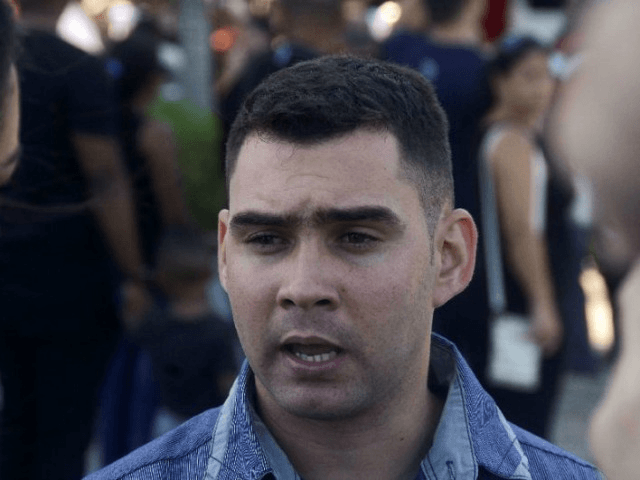Elián González, the Cuban government mouthpiece kidnapped from his Florida relatives’ home by the Clinton administration in 2000, has resurfaced in a CNN documentary asserting his atheism, but suggesting that if he had to worship anything, it would be Fidel Castro.
González, now 23, makes semi-regular appearances in Cuban propaganda. The Cuban government offered him a prominent role in the elaborate funeral ceremonies for the late dictator Castro following his death in November.
Speaking to CNN, González referred to the abduction from his Miami relatives’ home following his legal presence on the island as a “rescue” and suggested he was pleased with his role in whitewashing the brutal oppression of the communist regime President Bill Clinton’s administration sentenced him to be raised by.
“I would never aspire to have my name at the heights of Fidel’s or Che [Guevara]’s or Raúl [Castro]’s, but I did earn a little place in the hearts of the Cuban people,” González said, omitting the lack of known deaths to his name as a significant differentiating factor between himself and the Castro brothers and their head executioner Guevara. “I have to make my father proud, the Cuban people, the American people, Fidel, and the revolution which brought me home. That’s the psychological burden from that whole process.”
“I don’t practice any religion. I haven’t studied any religion. But if I did, of course, my god would be Fidel. To me, there’s no greater person,” González claimed.
Cuba is a repressive communist state under atheist family rule; Fidel Castro was succeeded by his brother, Raúl, who some believe will be succeeded in turn by military man and son Alejandro Castro. Worship of the Castro family is a key part of the Cuban education system and pervasive in Cuban youth media. On Christmas Eve 2016, for example, the youth propaganda publication Juventud Rebelde published a piece titled “Comandante of the Resurrection” featuring what appeared to be a Christmas carol to Fidel Castro.
González’s mother fled Cuba with him in tow and a larger group of refugees in 2000. González’s mother died at sea, where Florida fishermen rescued him and brought him to his family in Miami. The Cuban government demanded the return of the child despite the implementation of the “wet foot/dry foot” policy—which granted legal U.S. status to Cuban refugees on land. The Clinton administration ultimately yielded to Fidel Castro’s pressure, authorizing a violent midnight raid on González’s family home and abducting him at gunpoint, sending him back to Cuba.
The CNN documentary may be the first American audiences will see of González since his abduction in 2000, but González has surfaced in Cuban state media on multiple occasions. His most prominent appearance yet occurred during the mandatory nine-day mourning period for dictator Castro. González delivered remarks heralding Castro as an “immortal superman.”
“He has the power of being invincible, of being immortal. Fidel continues to live in the hearts of all the Cuban people, he grows, he becomes history,” González said, according to state propaganda outlet Granma. “He will never die.”
González had also appeared in Cuban media in 2015, thanking the Castros and the Cuban “people” for his time on the island. He told a Cuban state reporter that, in America, “with the rush of capitalist life, I would have forgotten the cause in two months … fifteen years after all that, I would not have had the awareness my parents gave me, and the love—which is I think is the most important thing.”

COMMENTS
Please let us know if you're having issues with commenting.